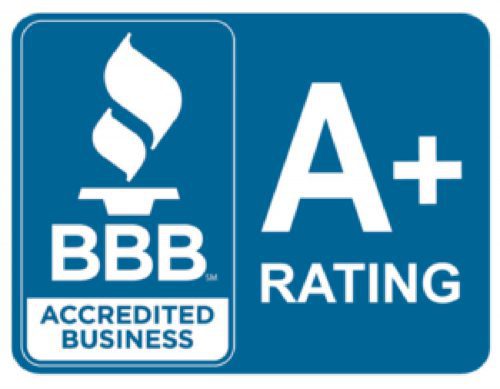Hydrocephalus
Hydrocephalus, also known as “water on the brain,” is a condition a baby may have if there’s a buildup of cerebrospinal fluid (CSF) around or in their brain. This happens if there is a blockage, flow, a lack of absorption, of overproduction of CSF. It can lead to increased pressure in a baby’s head as well as an expansion of the baby’s skull bones.
This condition happens in about 1 in every 1,000 births and is often congenital, which means that a baby will be born with it. Infants and children may develop it, however, and it could happen because a child has another disorder like encephalocele or spina bifida. It could also occur because a baby has a genetic defect.
Brain bleeds like intraventricular hemorrhages (IVH) and trauma to a baby’s head can cause hydrocephalus. A baby with this condition could end up having cerebral palsy, developmental delays, seizures, and intellectual disabilities.
If a doctor believes that a baby has hydrocephalus, then they can confirm the diagnosis by doing an ultrasound and then an MRI to see how severe the issue might be. Obstetricians will evaluate the brain and cranial structure during a mother’s pregnancy, but this condition might not develop until the third trimester. A doctor may not be able to diagnose it until the end of the pregnancy.
Symptoms of Hydrocephalus
There are a number of different symptoms that could point to a baby having hydrocephalus. They include:
- Vomiting
- Fussiness
- Sleepiness
- Slowed development
- Seizures
- Eyes that do not look up
- Poor appetite
- Bulging at the soft spot in babies under 1 years old
- Large scalp veins
- Increasing head size
Only a doctor will be able to diagnose a baby with this condition, since some of these symptoms, like sleepiness, fussiness, and vomiting are common among babies and don’t necessarily mean that a baby is sick.
Treatment for Hydrocephalus
Once a baby has been diagnosed with hydrocephalus, then a doctor can begin treatment. This must happen pretty quickly to avoid further brain damage.
Treatment includes:
- Draining the CSF by using a shunt, or tube, that will redirect additional fluid to another part of a baby’s body so that it’s absorbed.
- Doing an endoscopic third ventriculostomy (ETV), where the neurosurgeon makes a small hole in the bottom of one of the spaces in a baby’s brain, the ventricle, which will cause the CSF to bypass the present obstruction and flow into natural pathways.
If a baby ends up developing another condition like cerebral palsy or a seizure disorder, then they will need further treatment, perhaps for the rest of their lives. This type of treatment could include:
- Taking the child to occupational and physical therapy so they can learn how to move their bodies and perform everyday tasks
- Ensuring the child takes the proper medication, such as anticonvulsants, sedatives, or muscle relaxants
- Getting surgery to improve physical outcomes
A child might need a caregiver to assist them or medical equipment they can use to move around. They may also benefit from other types of therapy like music, art, and recreational therapy.
How Much Will I Receive From a Hydrocephalus Settlement?
You could potentially win a settlement for your baby’s hydrocephalus if medical malpractice occurred. Your damages could include:
- Medical bills
- Loss of companionship and enjoyment of life
- Pain and suffering
- Future medical care
- Loss of earning capacity
How much you receive will depend on whether or not you can prove medical malpractice, what your damages added up to, and your birth injury lawyer’s negotiating skills – which is why it’s critical to hire a lawyer with extensive experience in this field.
The higher your noneconomic and economic damages, the higher your settlement could be. If your baby has a lifelong condition like cerebral palsy or seizure disorders, then your settlement would be higher than if the initial surgery controlled your baby’s hydrocephalus and there weren’t any other issues.
Settlement Offers in a Hydrocephalus Case
If you want to bring a lawsuit against your doctor for medical malpractice, then you’ll need the right evidence to prove your case. This evidence could include medical records, witness statements, and photographs of your baby’s injuries. However, even if you have evidence, you will need to prove that your doctor was negligent. This means they had a duty of care to uphold, they breached it, and their negligence caused your baby to become injured.
Since hydrocephalus is often congenital, there might not be anything a doctor could have done to prevent your baby from having it. But if they failed to take the right steps during labor, after birth, or during surgery, then you may have a case. Perhaps they didn’t monitor you and/or baby properly when you were pregnant or during or after labor. Maybe they didn’t act soon enough to perform surgery or they didn’t disclose the risks of surgery to you. Negligence does happen, and if it caused injury to your baby, you have the right to attempt to sue your doctor.
Keep in mind that it’s very tough to sue doctors, and you need solid evidence and the right representation to prove your case. If it were easy to sue doctors, patients might bring legal action against them all the time and the medical profession would suffer.
When you contact a birth injury lawyer, they will ask you about the details of your case and look over any evidence you can provide. They will then let you know their professional opinion on whether or not your case is valid. If it is, they will attempt to procure a settlement for you to cover your economic and noneconomic damages.
Why Contact a Birth Injury Lawyer?
Since hydrocephalus is such a serious condition, you need to spend time with your baby right now. You are likely dealing with a lot of stress and you need to be with your family in this moment. You don’t have the energy to fight with your doctor. A lawyer will take care of litigation so you can relax and move on with your life.
Hydrocephalus Birth Injury Attorneys
If your baby suffered from hydrocephalus and you believe that medical malpractice is to blame, then it’s time to reach out to an experienced birth injury attorney. Here at Gilman & Bedigian, we fight for you so you can get the compensation you deserve.
Contact Gilman & Bedigian 24/7 for a free consultation at (800) 529-6162.











